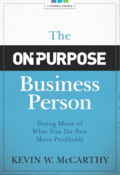Are your sales not where you would like them to be?
With many new clients, I often find that the failure to aim narrowly at a specific target audience is
- confusing clients
- extending the sales process
- demanding on salespersons
- losing them business
Is your marketing strategy and plan truly promoting your goods and services to the right people?
Time and again when interviewing business owners, salespersons, and marketers, I find their marketing message falls short because of confusion over a target market versus a target audience. This simple strategic marketing mistake costs dearly as the customer is left confused with messages that speak at them instead of to them. Confused customers are less inclined to buy.
Conducting a target audience analysis identifies specific needs, wants, hopes, and aspirations.
When you speak the customer’s language it offers assurance that you understand them and know how to solve their problem. Their comfort that you can identify their specific problem draws them to a conclusion that you are more appropriate and capable of caring for them.
When you’re perceived to be a less risky purchase, then the value proposition tilts in your favor. More sales can follow.
Communicating in generalities leaves customers guessing.
Here are two examples of ads from home heating and air conditioning companies in a local paper.
Ad #1 reads: “We’re the number one HVAC specialists. Call us for all your needs.”
Ad #2 reads: “Has your home air conditioning system just stopped? Call and be cool soon.”
Advertiser #2 has invested a bit more time that speaks to the specific needs of his target audience. It may appear a more expensive and narrow strategy, but the real test is not the number of calls, but the number of qualified calls. What do you think, will #2 beat #1?
Follow this simple On-Purpose Business Person rule of thumb:
Now that you’re thinking about the concept, who’s your target market and target audience? Want to talk it out? We’re here to help you.
